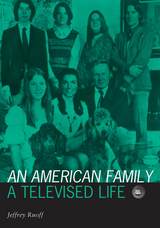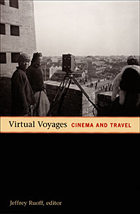

Some contributors take a broad view of travelogues by examining the colonial and imperial perspectives embodied in early travel films, the sensation of movement that those films evoked, and the role of live presentations such as lectures in our understanding of travelogues. Other essays are focused on specific films, figures, and technologies, including early travelogues encouraging Americans to move to the West; the making and reception of the documentary Grass (1925), shot on location in Turkey, Syria, Iraq, and Iran; the role of travel imagery in 1930s Hollywood cinema; the late-twentieth-century 16mm illustrated-lecture industry; and the panoramic possibilities presented by IMAX technologies. Together the essays provide a nuanced appreciation of how, through their representations of travel, filmmakers actively produce the worlds they depict.
Contributors. Rick Altman, Paula Amad, Dana Benelli, Peter J. Bloom, Alison Griffiths, Tom Gunning, Hamid Naficy, Jennifer Lynn Peterson, Lauren Rabinovitz, Jeffrey Ruoff, Alexandra Schneider, Amy J. Staples
READERS
Browse our collection.
PUBLISHERS
See BiblioVault's publisher services.
STUDENT SERVICES
Files for college accessibility offices.
UChicago Accessibility Resources
home | accessibility | search | about | contact us
BiblioVault ® 2001 - 2024
The University of Chicago Press









